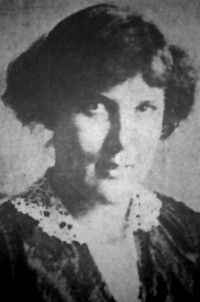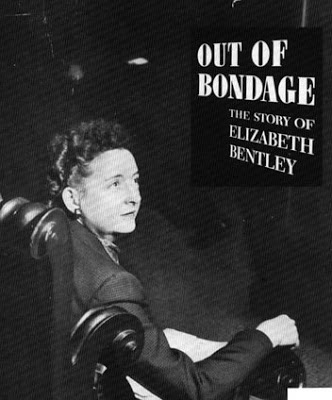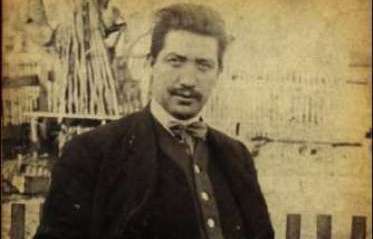
Juliet Stuart Poyntz was an ex-Soviet spy who disappeared in New York City in 1937.
Juliet Stuart Poyntz was an American activist who had been involved in left-wing circles since her early 20s. Initially, Poyntz was a moderate socialist who fought for labor rights and women’s’ suffrage, but she eventually moved further left and joined the Communist Party USA. Through the rest of the 1920s and 1930s, Poyntz moved up the party’s hierarchy and became involved with other internationalist communist groups. In 1934, Poyntz dropped out of politics and started working as an agent for the Soviet secret police.
Poyntz’s job was to collect information about scientific research in the U.S., but former Soviet spy and dissident Elizabeth Bentley claimed in her autobiography that Poyntz also tried recruiting other American communists for spy work. When Bentley first met Poyntz in 1935, Poyntz was allegedly helping in the organization of communist revolutionary groups in Italy. Poyntz, whom Bentley described as immoral and short-tempered, was looking for somebody to teach her Italian. Her real desire, however, was to recruit Bentley as a spy. Bentley wouldn’t have it though, and after being introduced to a sleazy Russian agent named “Smith”, thought that Poyntz was an anti-communist infiltrator.

Elizabeth Bentley was a spy for the Soviets from 1938 until 1945. She would later go public and expose two networks of American communists who were spying for the USSR.
Along with a male friend, Bentley went to Poyntz’s apartment and accused her of being a double agent right to her face. Two days later, Poyntz and a woman from the Communist Party USA showed up at Bentley’s apartment and threatened her if she ever decided to go public about what she knew. “Just remember one thing,” Poyntz said to her, “if ever you meddle in my affairs again, I’ll see that you’re taken care of. You’ll be put six feet under and you won’t come back to do any more talking!”
The next year, Poyntz went to Moscow and observed the first stages of the Great Purge. She ended up returning to America bitterly disappointed about the USSR. To the astonishment of her Stalinist compatriots, Poyntz became a vocal critic of the dictator and cut off her ties to the Soviets. Over the last few months of her life, Poyntz appeared increasingly anxious and frightened. On June 5, 1937, Poyntz received a phone call and then left her apartment in New York City. Although some weeks went by without anybody hearing from her, none of her friends were alarmed at her sudden disappearance. They assumed that she had left for Europe or was on another mission for the Soviets. By October, however, her friend and attorney Elias Lieberman had become concerned.

Carlo Tresca, a friend of Juliet Poyntz’s, believed that she was killed by the Soviet secret police.
Along with Poyntz’s apartment manager, Lieberman checked his friend’s apartment room and found that all her personal belongings were there. Her clothes were hanging untouched in her closet, and her passport and other important documents had been left behind. Lieberman tried conducting an investigation by himself, but decided to go to the police after a newspaper got wind of the story.
Naturally, there was a lot of fervor in the press about Poyntz’s former role as a secret spy. Her friends and other anti-Soviet communists believed that there was a connection. Before she disappeared, Poyntz had told them that she was planning to write a book that would expose other Soviet agents and Communist Party USA officials. According to Carlo Tresca, an American labor activist who would later die under mysterious circumstances himself, Poyntz met a former lover at the park the day she disappeared. The man, a newspaper editor and Soviet agent named Shachno Epstein, lured Poyntz away so that she could be abducted and taken to the USSR. Years later, in his famous book Witness, dissident Whittaker Chambers repeated a similar story, but said that Poyntz was forced into a car and then murdered to keep her quiet. Although she was ruled legally dead in 1944 by the New York Surrogate’s Court, what exactly happened to Juliet Stuart Poyntz has remained a mystery.
Reblogged this on Kerberos616.
LikeLike
Poyntz was apparently marked for purging, as a ‘Trotskyist-Fascist’. Certainly the late 30’s was not a safe time to be an opponent of Stalin. It was on 12th June 1937 that the Red Army Generals were executed. The OGPU/NKVD and Stalin were so concerned that their carefully orchestrated show trials were being viewed with unconcealed skepticism by western media, that they devised a plan for a series of trials in foreign nations. In Spain, the trial of the Spanish Marxist Party (POUM) leaders occurred in October 1938. In Czechoslovakia, former German communist leader Anton Grylewicz, was arrested by Prague police in June 1937 at the behest of the OGPU/NKVD in the hope of proving that the Czech Trotskyists were working with Hitler to undermine the Prague government. Both these attempts to legitimise Soviet justice via the use of foreign courts all fell flat. According to Samuel Ginsberg (aka Walter Krivitsky) the OGPU were attempting to have anti-Stalin ‘Trotskyist’ elements in America set-up and framed as agents of Hitler’s Gestapo. Poyntz was a target, because it would appear that she was recruited during the tenure of Valentine Markin. Krivitsky was told by his boss Abram Sloutski that Markin had been a ‘Trotskyist’ who had filled the OGPU service in America with Trotskyists. Markin was liquidated in New York in 1934. Nikolai Yezhov, probable architect of the foreign trials scheme, was replaced by Beria in 1938. Walter Krivitsky was urgently neutralised in 1941.
LikeLike
Sorry for such the late reply! I had no idea about any of this, that’s some very interesting stuff. As a matter of fact, I had no idea there were Soviet spies in America during the 1930s until I started researching this article. I see there’s a lot on this subject that I need to read up on, thank you for your comment!
LikeLike
Thanks, it was your post that inspired me to gather a couple of sources together mainly for cross-checking purposes. I had never heard of Juliet Poyntz before. My main reference for the response was Walter Krivitzky’s ground-breaking 1939 book, ” In Stalin’s Secret Service “. Truly, this was one of the first (if not the first) ‘whistleblower’ account ever written. Krivitzky (a former Head of Soviet Military Intelligence for Western Europe) paid the ultimate price for the information in the book. In the ‘isolationist’ America of the time, his warnings went largely un-heeded. Former Secretary of State Acheson described the whole approach to security and intelligence as ‘primitive’. We would all pay a price for that in the Cold War years to come. It was over a decade after his murder that it was realized that Krivitzky’s intel about a Soviet spy ring operating within the British Government that included a dashing young Scotsman who smoked a pipe and occasionally wore a cape, was a reference to Donald Maclean.
It’s intriguing to consider that the whole Cambridge spy ring (Edith Tudor Hart’s boys; Anthony Blunt; Harold ‘Kim’ Philby; John Cairncross; Guy Burgess; Donald Maclean) could have been uncovered in the early 40’s had there then been an effective FBI defector protection program; and/or an American intelligence service.
LikeLike